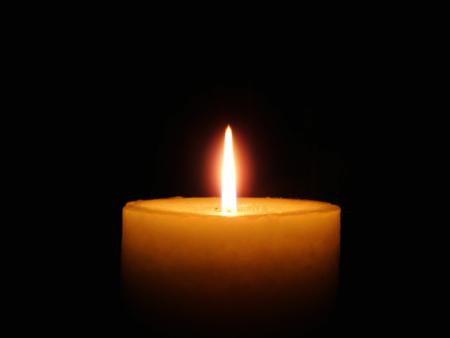Support for miscarriage
Q. Thank you for a recent answer in your column regarding a miscarried child. Until my own personal experience in losing a child, I had no realization as to how deeply a miscarried baby can touch one's heart.
I had no idea where to turn for help, so, beyond my mother and my husband, I grieved in silence. A few years later, still grieving, I did contact a caring priest. He listened over the phone and said that he had seen a couple of prayers that might be appropriate. He then met with my husband and me and, through our discussion and prayer, I was helped to find closure.
But I am still puzzled that the Catholic Church does not have something more formal for grieving parents after a miscarriage occurs. Are there any resources, prayers or rituals available for the numerous parents who sit with empty arms? (Burlington, Iowa)
A. Your search for solace after a miscarriage is understandable and, sad to say, all too common. The American Pregnancy Association states that 10 to 25 percent of all clinically recognized pregnancies end in miscarriage. It stands to reason, then, that the Catholic Church would provide resources for such grief-stricken parents, and in fact the church does offer a variety of options that can bring spiritual solace and hope.
The church's official "Book of Blessings" contains a ritual, commonly offered by a priest or deacon, called "Blessing of Parents after a Miscarriage." In it, a series of scriptural readings is provided, each of which highlights the continued presence and support of the Lord through times of sadness.
One of the prayers reads: "Compassionate God, soothe the hearts of these parents, and grant that through the prayers of Mary, who grieved by the cross of her Son, you may enlighten their faith, give hope to their hearts and peace to their lives."
Other prayers in that same ritual note the promise of eventual reunion with the miscarried child in heaven. "Comfort these parents with the hope that one day we will all live with you."
Another option that the church offers to parents is a funeral Mass for the miscarried child. And since the church believes in the sanctity of life from the moment of conception, parents are always encouraged to give the miscarried child a name, acknowledging the child's unique identity and presence now before the Lord as an intercessor on behalf of the family.
Many dioceses also offer individual counseling and/or support groups for parents after a miscarriage. Your parish would have that information.
Q. With the church having just celebrated the feast of the Holy Family, I am prompted to ask a question that has been on my mind for some time. I regularly hear Joseph referred to as the "foster father" of Jesus.
But if Joseph was indeed married to Mary, would it not be more accurate to call him the "stepfather" of Christ? A foster father is sometimes compensated for his role and serves in that capacity for only a short time, whereas a stepfather raises his stepchildren with love. I think that Joseph should be spotlighted as a wonderful example of what a stepfather should be. (Lilly, Pennsylvania)
A. A foster father is commonly understood to be a surrogate, a man who looks after and brings up a child in place of the natural or adoptive father.
A stepfather is generally taken to indicate the husband of one's mother after the death or divorce of his or her birth father.
Which of these definitions comes closer to describing Joseph? In one sense, neither is precise. Both titles seem to suggest that Joseph arrived on the scene later on, after the birth of the Christ child. But in fact, Joseph was there from the start, betrothed to Mary (engaged, but with legal responsibilities) at the time of the annunciation.
Between the two titles, I think foster father is more accurate, and that is what the church historically has called Joseph. He filled the role of teacher, protector and loving guardian of Jesus, though he was not his biological parent.
---
Questions may be sent to Father Kenneth Doyle at askfatherdoyle@gmail.com and 40 Hopewell St. Albany, N.Y. 12208.
- Father Kenneth Doyle is a columnist for Catholic News Service



















